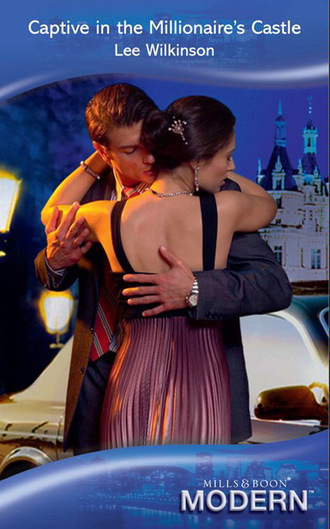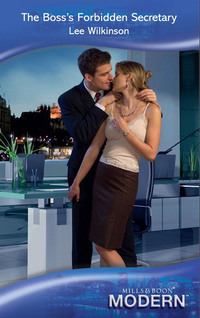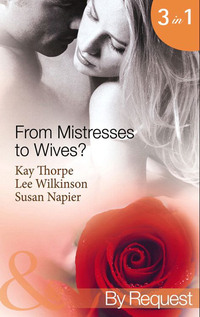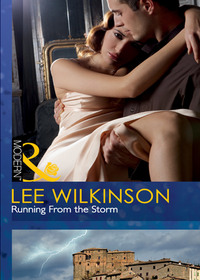
Полная версия
Captive In The Millionaire's Castle
The car, a chauffeur-driven Mercedes, drew up outside dead on time.
Laura, who was stationed by the window, exclaimed excitedly, ‘It’s here! Well, off you go, and the best of luck.’
Trying to quell the butterflies that danced in her stomach, Jenny picked up her shoulder bag, and said, ‘Thanks. Enjoy your day.’
Outside, the air was cold, and Jack Frost had sprinkled the pavement with diamond dust and scrawled his glittering autograph over natural and man-made objects alike.
By the kerb, the elderly chauffeur was standing smartly to attention, waiting to open the car door for her.
As she reached him he bid a polite, ‘Good morning, miss.’
Jenny returned the greeting and, feeling rather like some usurper masquerading as royalty, climbed in and settled herself into the warmth and comfort of the limousine.
By the time they reached Mayfair and drew up outside the sumptuous block of flats, she had managed to conquer the nervous excitement, and at least appear her usual cool, collected self.
Having crossed the marble-floored lobby, she identified herself to Security before taking the private lift up to the second floor, as instructed.
As the doors slid open and she emerged into a luxurious lobby she was met by a tall, thin butler with a long, lugubrious face. ‘Miss Mansell? Mr Denver is expecting you. If you would like to follow me?’
She obeyed, and was ushered into a large, very well-equipped office.
‘Miss Mansell, sir.’
As the door closed quietly behind her a tall, dark, broad-shouldered man dressed in smart casuals rose from his seat behind the desk.
A sudden shock ran through her, and though somehow her legs kept moving she felt as if she had walked slap bang into an invisible plate-glass window.
While she was convinced they had never met, she felt certain that she knew him. Some part of her recognized him, remembered him, responded to him…
But even as she tried to tell herself that she must, at one time, have seen his photograph in the papers, she felt quite certain that that wasn’t the answer. Though there had to be some logical explanation for such a strong feeling.
Michael, for his part, was struggling to hide his relief. For a man who was normally so confident, so sure of himself and the plans he was putting into action, he had been unsettled and on edge. Half convinced that she wouldn’t come, after all, and angry with himself that it mattered.
Now here she was, and though for some reason her steps had faltered and she had appeared to be momentarily disconcerted, she had quickly regained her composure.
Holding out his hand, he said without smiling, ‘Miss Mansell… How do you do?’
His voice was low-pitched and attractive, his features clear-cut, but tough and masculine rather than handsome.
‘How do you do?’ Putting her hand into his, and meeting those thickly lashed, forest-green eyes, sent tingles down her spine.
She had expected him to be middle-aged, but he was considerably younger, somewhere in his late twenties, she judged, and nothing at all like the picture Laura had painted of him.
At close quarters, Michael found, she was not merely beautiful, but intriguing. Her face held both character and charm, and a haunting poignancy that made him want to keep on looking at her.
Annoyed by his own reaction, he said a shade brusquely, ‘Won’t you sit down?’
Despite the instant impact he had had on her, she found his curt manner more than a little off-putting, and she took the black leather chair he’d indicated, a shade reluctantly.
Resuming his own seat, he placed his elbows on the desk, rested his chin on his folded hands, and studied her intently.
Her small, heart-shaped face was calm and composed, her back straight, her long legs crossed neatly, her skirt drawn down demurely over her knees.
There was no sign of the femme fatale, not the faintest suggestion that she might try to employ any sexual wiles, which seemed to confirm that she was different from the women who had, in the wake of his divorce, seemed to think he was fair game.
Appreciating the natural look, after all the artificial glamour of the modelling world, he was pleased to note she wore very little make-up. But with a flawless skin and dark brows and lashes, she didn’t need to.
Up close, the impact of those big brown eyes and the wide, passionate mouth was stunning. But though she was one of the loveliest and most fascinating women he had ever seen, it wasn’t in a showy way.
Her hands were long and slender, strong hands in spite of their apparent delicacy, and he was pleased to see that her pale oval nails were buffed but mercifully unvarnished.
On her right hand he glimpsed the gold ring she had worn the previous night, but her left hand was bare.
Becoming aware that she was starting to look slightly uncomfortable under his silent scrutiny, and wanting to know more about her, he instructed briskly, ‘Tell me about yourself.’
‘What exactly would you like to know?’
She had a nice voice, he noted—always acutely sensitive to voices—soft and slightly husky.
‘To start with, where you were born.’
‘I was born in London.’
‘And you’ve lived here all your life?’
‘No. When I was quite small, we moved to the little town of Kelsay. It’s on the east coast…’
With a little jolt of excitement, he said, ‘Yes, I know it.’ The fact that she came from Kelsay seemed to confirm—though he hadn’t really needed any further confirmation—that she was the girl he had seen at the castle.
‘So how come you’re back in London?’
‘When my great-grandmother, whom I was living with, died just a few weeks after I left school, I enrolled at the London School of Business Studies. Then when I had the qualifications I needed, I applied for, and got, a job with Global Enterprises.
‘I started work in the general office, then became PA to Mr Jenkins, one of the departmental heads.’
‘I understand from Paul Levens that Mr Jenkins is retiring, and that the department he ran is being merged with another. Which is why you’re looking for a new position?’
‘That’s right.’
‘He also mentioned that Mr Jenkins spoke very highly of you, praising your loyalty, your tact and your efficiency. All attributes that as far as I’m concerned are essential.’
When she said nothing, merely looked at him steadily, he went on to ask, ‘What, in your opinion, is a PA there for?’
‘I’ve always thought that a good PA should keep things ticking over smoothly and do whatever it takes to keep her boss happy.’
‘Even if it includes running his errands and making his coffee?’
‘Yes,’ she answered without hesitation.
Thinking that after some of the women he had known she was like a breath of fresh air, he asked, ‘You wouldn’t regard that as infra dig?’
‘No.’ Seriously, she added, ‘I’ve always thought of a PA as a well-paid dogsbody.’
Managing to hide a smile, he said, ‘Good. Though the majority of the work would involve taking shorthand then transferring it onto a word-processor, it’s that part that slows me down, I’m looking for a PA who isn’t going to quibble about exact duties.
‘I also need someone who, as well as being efficient, is discreet and trustworthy.’
‘Mr Levens explained that.’
‘And you think you fit the bill?’
‘Yes, I believe I do.’
‘Though the monthly salary will stay the same, between books there may be longish periods when I won’t need a PA at all.
‘But I must warn you that when I am writing, I often work seven days a week, and should I decide to work in the evenings, I’ll expect my PA to be available. Would you be happy with that kind of “all or nothing” arrangement?’
She answered, ‘Yes,’ without hesitation.
Michael was well satisfied with that firm ‘yes’. If he did decide to give her the job, and it was still a big if, it sounded as if she might well take it.
CHAPTER TWO
JUST for a moment the thought stopped Michael in his tracks. Was he seriously considering letting a woman into his life again, even on a purely business basis?
He wished he could come up with a resounding no way! But somehow this woman was different. And he was strangely reluctant to let her walk away from him for a second time.
Glancing up, and finding Jenny was looking at him expectantly, he rounded up his straying thoughts and resumed his questioning. ‘While you’ve been working for Global Enterprises, how many times have you been off sick?’
‘None at all. Luckily, I’m very healthy.’
‘Then we come to the question of salary, and holidays. The commencing salary would be…’
He named a sum so in excess of what she might have hoped for that she blinked.
‘But I expect holidays to be fitted in during the slack periods. Any taken during the busy spells would need to be agreed on well in advance. Does that seem reasonable to you?’
‘Perfectly reasonable,’ she answered steadily.
Running lean fingers over his smooth jaw, he regarded her in a contemplative silence for a moment or two.
She was a very beautiful woman, and, even taking into account a broken engagement, it was hard to believe that there was no current man in her life.
Deciding that that was one thing he ought to establish, he began carefully, ‘Do you live alone?’
‘I have a flatmate.’
‘As distinct from a live-in lover?’
A little stiffly, she objected, ‘I’m afraid I don’t see why my private life is relevant.’
His face cold, he said, ‘It’s relevant on more than one count. Apart from the long hours which this kind of work sometimes involves, when I begin a new book I prefer to leave London and work in comparative isolation, where I can be quite free from any unwanted social distractions.’
‘Oh…’
Deciding to spell it out, he added, ‘Which means I need a PA who is free from any personal commitments or obligations.’
‘I see,’ she said slowly.
‘Is that a problem for you?’
She shook her head. ‘No, not really.’
No nearer to finding out what he wanted to know, he applied a little more pressure.
‘Then you have no ties? For example, no fiancé, who would almost certainly object?’
‘No.’
Well, that seemed decided enough. Though he knew to his cost that, if it suited them, some women could lie with composure.
‘And you don’t dislike the thought of having to leave London?’
‘No, not at all.’
She sounded as if she meant it.
He was oddly pleased.
Claire had hated the thought of leaving the bright lights of London and burying herself in what she referred to as ‘the back of beyond’, and after the first time she had refused point blank to go to Slinterwood again.
To please her, he had tried staying in town to finish writing Mandrake, but after several unproductive weeks he had given it up as hopeless.
With that important deadline fast approaching, she had suggested that he should go to Slinterwood while she remained in London.
Now, in retrospect, he could see that that had been the beginning of the end as far as their marriage was concerned…
Jenny was sitting quite still, but, sensing that she was once again growing uncomfortable with the lengthening silence, he went on, ‘In that case I’m prepared to offer you a month’s trial period.’
He hadn’t consciously made up his mind, and his abrupt offer of a job had surprised even himself.
Jenny, also taken aback by the suddenness of the offer, hesitated, wishing she had more time to think.
Picking up the vibes, and sensing his earlier indecision, not to mention a certain amount of antagonism, she had expected further searching questions, and then a cool promise to ‘let her know’.
She wanted the job, so she really ought to be over the moon, but she had found his attitude, and the intentness of his gaze, more than a little daunting.
But that wasn’t insurmountable, she told herself stoutly. The important thing was that she had been offered the chance to work for a writer she admired enormously, and even if her job was only to transcribe his words she wanted to be part of the creative process…
Now, watching her hesitate, and suddenly concerned that she was about to refuse after all, he asked brusquely, ‘So what do you say?’
Telling herself that if it did prove to be a mistake, it was only for a month, she said, ‘Thank you. I—I accept.’
He nodded. ‘Good. Now the only thing is, how soon can you start?’
‘Whenever you like.’
‘Then let’s say immediately.’
‘You mean Monday?’
Deciding to strike while the iron was hot, he told her, ‘I mean now.’
Sounding a little startled, she echoed, ‘Now?’
‘As I told you, when I begin a new book I prefer to leave London and work in comparative isolation. I was planning to go today. Seeing that you’re free to start at once, it would be more convenient if you travelled with me.’
‘Very well.’
‘If my chauffeur takes you home, how long will you need to get organized and pack enough clothes for…shall we say…up to a month? Then we’ll both be free to reassess the situation.’
‘Half an hour at the most.’
‘Excellent.
‘By the time you get down to the lobby, the car will be outside, waiting. The car will drop you home and when you’ve had time to pack, I’ll pick you up myself.’
‘Thank you.’
Feeling as though she had been caught up and swept along by a tidal wave, she got to her feet and prepared to leave.
Wondering if he’d done the right thing, or if he’d allowed his subconscious feelings to hurry him into something he might regret, Michael rose to accompany her. If he found he had made a mistake he could always pay her for the month but get rid of her straight away.
Once again picking up the vibes, and not altogether at ease, Jenny headed for the door. Though at five feet seven inches she was tall for a woman, he was a good head taller, with a mature width of shoulder, and for once in her life she felt dwarfed, towered over.
As he opened the door the butler appeared as if by magic to escort her to the lift.
‘I’ll call for you in approximately an hour, depending on the traffic,’ her new boss reminded her.
‘I’ll be ready,’ she promised.
She had moved to join the manservant when a thought struck her, and, turning to Michael Denver, she began, ‘Oh, by the way, where are we—?’
At the same instant the phone on his desk rang, and with a murmured, ‘Excuse me,’ he turned to answer it.
Oh, well, Jenny thought resignedly, she could find out exactly where they were going when he came to pick her up.
The Saturday morning traffic proved to be relatively light, and the drive back to her Bayswater flat was over quite quickly.
As good as her word, some half an hour after the chauffeur had dropped her Jenny’s case was neatly packed with easy-care, mix-and-match stuff, and she was ready and waiting.
Smiling to herself, thinking of her flatmate’s excitement when she read it, Jenny began to scrawl a hasty note.
Got the job, subject to a month’s trial period. Will be starting immediately. Being whisked off to what I presume is his house in the country to begin work on his latest book.
Will be in touch. Jenny.
PS. The man himself is nothing like either of us pictured. He’s quite young and not bad-looking, but rather cold and unapproachable, so he might not be pleasant to work for.
She had just finished writing when, glancing out of the window, she saw a large black four-wheel drive with tinted windows draw up by the kerb. It seemed somewhat out of place in London, but no doubt it would have its uses in the country.
Picking up her case and shoulder bag, her coat over her arm, she brushed aside the niggling doubt that she was doing the right thing, and hurried out.
The air was still cold, but the sun was now shining brightly from a clear, duck-egg-blue sky, and reflecting in the car’s gleaming paintwork.
As she walked across the pavement Michael Denver opened the car door and jumped out, and she felt the same strange impact she’d felt on first seeing him.
‘Good timing,’ he congratulated her as he came round to take her case, before opening the car door.
By the time she had climbed in and fastened her seat belt he had stowed her case and was sliding behind the wheel once more.
While he skilfully threaded his way through the traffic, she stayed silent and tried to relax, but she was very conscious of him and could only manage, at the most, an appearance of tranquillity.
It wasn’t until they had reached the suburbs and were heading out of London that she broached the question that had been at the back of her mind. ‘By the way, Mr Denver—’
‘I’d prefer to be on first-name terms,’ he broke in coolly, ‘if that’s all right with you?’
She had expected him to retain the formality of surnames, at least for the time being, and, startled, she answered, ‘Oh, yes… Quite all right…’
‘Michael,’ he prompted.
It seemed somehow momentous to be using his given name, and it took a second or two to pluck up enough courage to say, ‘Michael.’
‘And you’re Jennifer?’
‘Yes. But I usually get called Jenny.’
‘Then Jenny it is. A nice old-fashioned name of Celtic origin,’ he added. ‘Now, you were about to ask me something?’
‘Oh, yes… I still don’t know where we’re going. I presume you have a house somewhere in the country?’
‘Yes, it’s called Slinterwood.’ His tone of voice holding an undercurrent of something she couldn’t quite pin down, he added with apparent casualness, ‘You know the Island of Mirren?’
‘Of course.’ Her voice held a little quiver of excitement. ‘It’s just down the coast from where my great-grandmother used to live.’
‘Have you ever visited it?’
‘I went once.’
‘How long ago?’
‘I was eighteen at the time. It was a short while before I moved to London.’
‘You went to see Mirren Castle?’
‘Yes. In those days it was open to the public at certain times.’
‘What did you think of it?’
‘I didn’t see a great deal,’ she admitted. ‘I’d gone on the spur of the moment, quite late one afternoon, and I’d chosen the wrong day, which meant I couldn’t go inside.
‘But what I did see of the place was absolutely wonderful and I’ve never forgotten it. I had hoped to go back one day and see more of it.’
‘And did you?’ he pressed.
She shook her head. ‘Things change, and by the time I had a chance it was too late. I heard that Mirren’s new owner had closed the castle to the public and made it clear that visitors to the island were no longer welcome.’
‘So you’ve never been back?’
‘No.’
‘Well, as you say, things change. But there’s nothing to stop them changing again.’
She was wondering about that rather cryptic remark when he pursued, ‘Did you ever find out who the new owner was?’
She shook her head. ‘No. But I believe the island stayed in the hands of the same family. It was just a different policy in force.’
‘A policy that caused you great disappointment?’
‘Well, yes… Though I can’t say I really blamed the new owner.’
In answer to her companion’s questioning glance, she admitted, ‘If it was mine, I wouldn’t want visitors tramping around making a noise and dropping litter.’
When he said nothing, feeling the need to justify that remark, she added, ‘I can’t help but feel that a lot of the island’s charm must lie in its isolation and the serenity that kind of isolation brings.’
Either her feelings echoed his own, or, he thought cynically, she was clever enough to realize that they were what his feelings would be, and to play up to him.
‘Then you’re not a gregarious creature?’ he asked.
‘No, not really.’
‘Yet you chose to live in London.’
‘I don’t dislike London. It’s an exciting, vibrant place to live, and of course it’s where a lot of the jobs are.
‘But after I’d left Kelsay I found I missed the sound of the sea and the dark night sky and the stars. With the glow from the street lamps it’s not easy to see the stars in central London—’ Suddenly realizing her tongue was running away with her, she broke off abruptly.
It wasn’t at all like her to talk so freely to a man who was not only a virtual stranger but her new employer, and she wished she had been more circumspect, more restrained.
When he made no effort to break the ensuing silence, fearing she had already got off on the wrong foot, she apologized. ‘I’m sorry, I’m afraid I was babbling. You can’t possibly be interested in my—’
‘Oh, but I am,’ he broke in smoothly. ‘And I found your “babbling”, as you call it, quite poetic.’
Unsure whether or not he was making fun of her, she let that go, and, trying to get back to the more mundane, pursued, ‘I presume from what you said just now that Slinterwood is somewhere near Mirren.’
‘Slinterwood is on Mirren.’
‘Sorry?’
He repeated, ‘Slinterwood is on Mirren.’
Still unsure if she had heard correctly, she echoed, ‘On Mirren?’
‘That’s right.’
She caught her breath, bowled over by the thought of actually staying on Mirren.
For as long as she could remember, she had felt a strange affinity with the place, a secret fascination that almost amounted to an obsession.
She had thought of it as her island.
It drew her, called to her. Even when she and her parents had been living in Jersey, Mirren had often been in her thoughts.
Having decided to go back to Kelsay to take care of her great-grandmother, she had made up her mind to ask the old lady—who had lived within sight of the island all her life—to tell her everything she knew about it.
But on the day before Jenny’s arrival another stroke had left her namesake partially paralyzed and unable to speak coherently.
Now fate seemed to be offering a chance, not only to learn something about her island, but to live on it for a while.
She could barely restrain her surprise and delight.
Giving her a sidelong glance, he commented, ‘You look pleased.’
Steadying herself, she said, ‘I am rather.’
‘And surprised?’
‘That too. For one thing, I thought Mirren was still privately owned.’
‘It is.’
So if he rented a house there, even if it was through an agency, he probably knew the name of the family who owned it.
She waited hopefully, but, when he volunteered no more information, unwilling to appear over-curious in case it stalled the conversation she refrained from asking.
No doubt she could broach the subject again, when they had got to know each other better.
Her restraint was rewarded when he went on, ‘You said, “For one thing”… So what was the other?’
‘I hadn’t realized there were any buildings on the island, apart from the castle.’
‘Oh, yes.’
‘So where is Slinterwood, exactly?’
‘It stands overlooking the sea, about a mile south of the castle.’
‘How strange I never saw it.’
‘Not really. I’m half convinced that, like Brigadoon, it’s enchanted, and only appears from time to time…’
He sounded perfectly serious. But when she glanced sideways at him she saw the corner of his long, mobile mouth twitch.
‘Apart from that, until you actually reach it, it’s hidden by a curving bluff and a stand of trees.’
‘Is it the only house on the island?’
‘No. There’s a couple of farms, and about half a mile down the coast from Slinterwood there’s a small hamlet that was built in the eighteen hundreds to house the estate workers.’
Seeing her puzzled frown, he went on, ‘You wouldn’t have noticed it—because of the lie of the land it’s only visible from the seaward side.’









